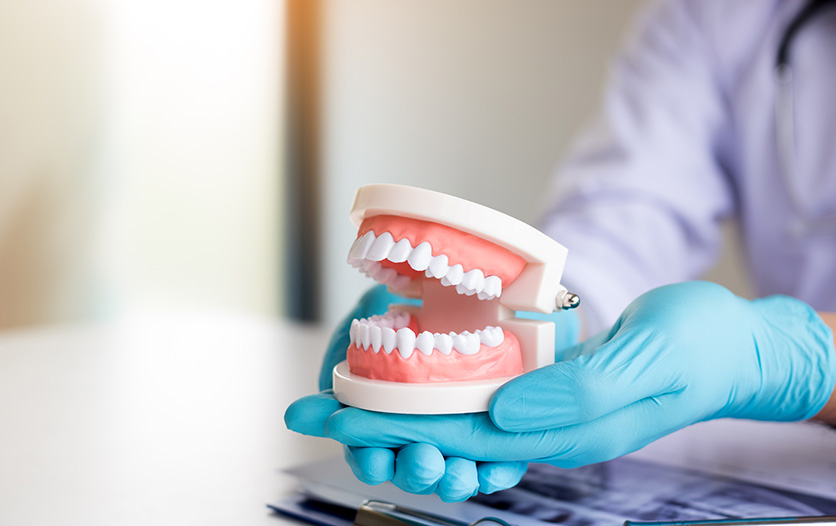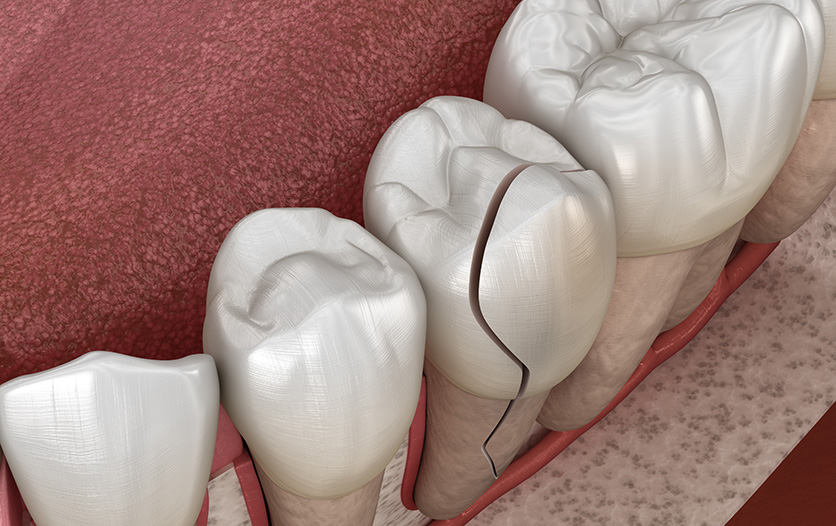
The Answers to the 10 Most Common Questions About Dentures
If you think you or a loved one suffer from tooth decay or gum disease, you likely have questions about dentures. These removable appliances are designed to not only restore your smile but improve your overall health as well, helping you eat and speak better.
To enable you to make an informed decision and ease any concerns, we compiled a list of questions about dentures that many people have as they begin to weigh the pros and cons of different dental solutions.
10 questions about dentures — and the answers
-
Who is a good candidate for dentures?
Certain circumstances will make your dentist more likely to recommend dentures.
If you recognize yourself in any of these three scenarios, dentures may become part of the conversation.
- Patient is missing all teeth:
Age, disease, trauma, and other variables can take such a toll on some people’s oral health that they may lose all their teeth. They consequently benefit from complete dentures that can easily be fitted to both their top and bottom gums.
- Patient is missing multiple teeth
When multiple teeth are missing but not full rows, partial dentures may be considered. Created using a mold of the patient’s mouth (just like complete dentures) and made to filll the gaps between the teeth, these dentures help you take back your natural smile.
- Patient has missing teeth as well as broken, chipped, or unhealthy teeth
Preserving damaged teeth or extracting them in favor of dentures? That’s a question that patients with severe oral health issues may need to discuss with their dental provider. If you suffer from badly damaged teeth as a result of, for example, trauma or gum disease, it sometimes makes more sense to pursue the latter option.
-
What are different types of dentures?
There are two types of dentures to accommodate your specific situation:
- Complete dentures replace all teeth and rest on the gums that cover the jawbone. Attaching these dentures to dental implants can improve their stability and retention.
- Partial dentures replace some but not all teeth. They adhere to the remaining teeth, as well as the gums and bone where the teeth are missing. Dental implants can also be used to restore and stabilize partial dentures.
-
How much do dentures cost?
Dentures can range in price from a few hundred to several thousand dollars. Partial dentures are usually less expensive than full dentures. Factors like the amount of time it takes to construct them and the dental materials used affect the final cost. If the procedure is more complex, you may need to return for several appointments, which could up the price tag.
-
What are dentures made of?
The short answer: it tends to depend on what type you get. Partial dentures often use metal for clasping on to natural teeth. Some dentures are made of an gum-colored acrylic base and acrylic-made teeth. Others feature advanced ceramics and other materials that some patents think look more like genuine teeth (think porcelain veneers but tougher).
-
How long do dentures last?
Normal wear and changes to your mouth as you age may both require your dentist to make adjustments to your dentures. Depending on the denture materials, count on replacing them every five to eight years, with acrylic resin dentures outlasting their plastic counterparts. If they only need partial reconstruction (relining or rebasing), your dentist will remake the gum portion of the structural base but keep the denture teeth.
-
How are dentures kept in place?
This is a question that patients considering dentures understandably want an answer to. While the techniques may vary depending on your style of dentures, there are a few common threads.
First of all, partial dentures use metal pieces that clasp on to your existing natural teeth. When all natural teeth are missing, on the other hand, dentists often use suction to create a seal that holds the dentures in place. Sometimes, they may also apply an adhesive to achieve the desired result.
Finally, dental implants can replace the need for adhesives as they are firmly connected to the jawbone, ensuring the dentures function almost exactly as regular teeth.
-
How are dentures fitted?
The better the fit, the more comfortable you will be. So, how does your dentist ensure optimal comfort? Again, the answer depends on what you are getting. Partial dentures are custom-made based on the mouth measurements your dentist takes. To ensure the best fit, your dentist may take impressions of the gums and mouth.
Complete dentures come either in a few pre-made sizes or are customized based on a mold or impression blueprint. The pre-made varieties tend to be cheaper as it gives you a more narrow selection to choose from. If you opt for immediate dentures, they will be fabricated before any teeth are removed and ready for your as soon as you have undergone that procedure.
-
What is eating and talking like with dentures?
Like most patients, you’ll experience a period of adjustment before the dentures settle in your mouth. That feeling may last from a few hours to a few weeks, especially if you had teeth removed. To get over the first hump of insecurity, your dentist will likely recommend that you practice at home to boost your confidence and make you feel more at ease out of the house. Some dentists also encourage the use of small dab of denture adhesive to stabilize the appliance and help you get comfortable.
-
Do dentures look like natural teeth?
The appliances of today are nothing like in the past. If you still associate dentures with large, oversized teeth that make it hard to speak clearly, there’s good news. The look and feel of dentures have changed dramatically as a result of advances in materials, fitting processes, and manufacturing techniques. These days, they are more comfortable, convenient, and reliable. And, yes, they look much more like real teeth, too.
-
Can dentures be whitened?
Most people want a bright smile, and denture wearers are no exception. When it comes to dentures, you need to follow certain steps to get the job done safely. Regular toothpaste can be too abrasive on some appliances and bleach may, if used too often, remove the overall color of the dentures. Make sure to use products made for denture cleaning and whitening and use them only after gently scrubbing your dentures with a toothbrush or stiff nail brush, using soap and water.
Do you have questions about dentures or other dental solutions? Please don’t hesitate to reach out. Our compassionate team at Evers Dental Center provides patient-centered care that helps you achieve both a beautiful smile and improved overall health. Contact us today.




